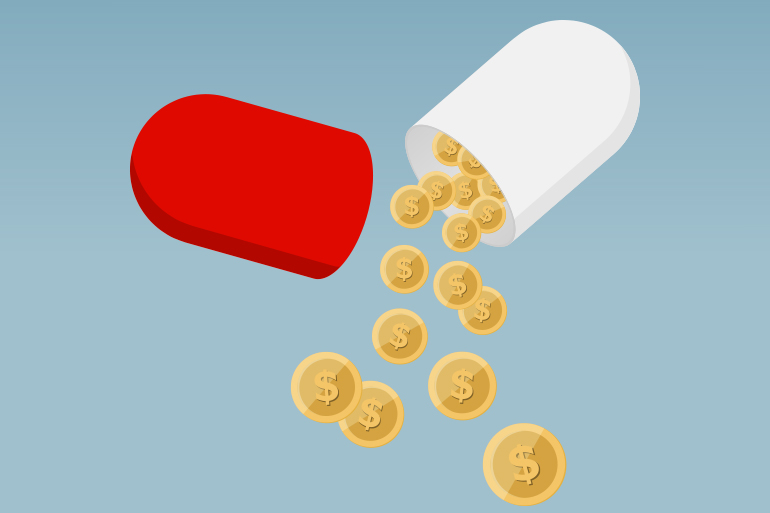With the sale of its controversial rare-disease drug finalized, Marathon Pharmaceuticals has taken the unusual step of resigning from the powerful industry lobbying group PhRMA.
Marathon had been a member of the Pharmaceutical Research and Manufacturers of America, and Marathon’s CEO, Jeffrey Aronin, had held a position on the board.
The news of Marathon’s resignation comes after the company was widely criticized this year for the $89,000 price tag for Emflaza, a drug for Duchenne muscular dystrophy. Last month, it sold the drug to PTC Therapeutics.
The resignation also falls as PhRMA works on a review of its membership criteria.
“My view is that we want to represent companies that are really swinging for the fences … [companies] that are taking enormous risks in bringing breakthrough treatments to market,” PhRMA President Stephen Ubl said in a recent interview with Kaiser Health News. “So we’ll be looking at our membership criteria to really focus on those attributes.”
An announcement about PhRMA’s membership criteria is expected in the coming weeks.
Mallinckrodt Pharmaceuticals is also no longer a member of PhRMA. A company spokesperson confirmed Mallinckrodt’s resignation in an email, saying “the significant financial and time commitment required” for PhRMA membership outweighed the policy value.
Mallinckrodt, like Marathon, has been in the spotlight for a high-priced drug. The company had bought the decades-old drug H.P. Acthar Gel, which is used to treat a variety of conditions, including lupus and multiple sclerosis. The drug cost $1,235 in 2005, but in 2015, it was priced at about $35,000.
PhRMA said it had no comment about the two drugmakers leaving the association. Neither company is listed as a member on the association’s website.
Marathon declined to comment for this story. The company has no drugs on the market.
According to a company memo obtained by Kaiser Health News, Marathon has discontinued membership in “all relevant associations” after the sale of Emflaza.
Emflaza was approved as an orphan drug by the Food and Drug Administration in February. But the drug has been available outside the U.S. for decades under the generic name deflazacort.
It is a steroid used to lessen the symptoms of Duchenne, a fatal muscle-wasting disease that affects mostly boys. For years, many American patients have imported the generic version at a cost averaging from $1,000 to $1,600 annually.
Facing public outcry over the price of Emflaza, Marathon first said it would “pause” the launch of the drug. In March, it announced that PTC Therapeutics would buy rights to the drug for $140 million in cash and stock. The drug’s new price has not been announced.
Ken Kaitin, a professor at Tufts University School of Medicine said the pharmaceutical industry has justified high prices by saying it needs to pay for research and development.
But when members like Marathon and Mallinckrodt take older drugs and charge high prices, “the rest of the pharma industry has trouble explaining that to the public.”
KHN’s coverage of prescription drug development, costs and pricing is supported in part by the Laura and John Arnold Foundation.
